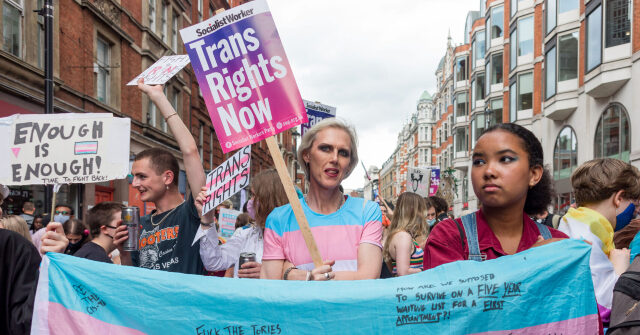

The wave of youths claiming to be “transgender” mimics the 1980s craze among young people who claimed to have had a “recovered memory” of sexual trauma, says a Finnish doctor who is also alarmed by U.S. therapists’ enthusiasm for radical sexual treatment of children.
“Medicine, unfortunately, is not immune to dangerous groupthink that results in patient harm,” Dr. Riittakerttu Kaltiala, the chief psychiatrist in the Department of Adolescent Psychiatry at Finland’s Tampere University Hospital, said.
In an October 31 article for the Free Press, she wrote:
What is happening to [“transgender”] dysphoric children reminds me of the recovered memory craze of the 1980s and ’90s. During that period, many troubled women came to believe false memories, often suggested to them by their therapists, of nonexistent sexual abuse by their fathers or other family members. This abuse, the therapists said, explained everything that was wrong with the lives of their patients. Families were torn apart, and some people were prosecuted based on made-up assertions. It ended when therapists, journalists, and lawyers investigated and exposed what was happening.
The recovered memory craze — sometimes described as “repressed memory” — caused significant personal and civic harm during the 1980s and 1990s. A September 2022 op-ed in the New York Times described the rise and fall of the therapist-fueled craze:
One survey of clinicians taken in 1994 revealed that 13 percent reported seeing at least one case of a patient remembering ritualistic abuse. Thousands of patients described truly incredible scenes of ritual murders, cannibalization, gang rapes and forced pregnancies.
…
We’ll never know how many people experienced recovered memory therapy. However, a 2017 poll of adults in the United States conducted by the psychology professor Lawrence Patihis and the author Mark Pendergrast provides some clues. They found that 20 percent of people they surveyed who went to treatment sometime in the past five decades reported being treated by therapists who suggested the possibility that the client had repressed memories of abuse.
In Europe, the growing evidence of “transgender” harm has caused Kaltiala and other doctors to step back from medical treatment of children and youths. Those European doctors are now urging American doctors to follow the evidence.
Breitbart News reported in July, “‘The politicization of transgender healthcare in the U.S. is unfortunate,” said a letter posted in the Wall Street Journal by 21 professionals from the United Kingdom, Sweden, Finland, Norway, France, Switzerland, and the United States.”
But U.S. doctors are ignoring the warning signals from the data collected by their European peers, Kaltiala wrote:
I attempted to address the rising international concerns about pediatric gender transition at this year’s annual conference of the American Academy of Child and Adolescent Psychiatry. But the two proposed panels were rejected by the academy. This is highly disturbing. Science does not progress through silencing. Doctors who refuse to consider evidence presented by critics are putting patient safety at risk.
U.S. doctors are also hiding the reality that many youths drop their claims of transgender status and quietly exit medical treatments:
There is an oft-repeated statistic in the world of pediatric gender medicine that only one percent or less of young people who transition subsequently detransition. The studies asserting this, too, rest on biased questions, inadequate samples, and short timelines. I believe regret is far more widespread. For example, one new study shows that nearly 30 percent of patients in the sample ceased filling their hormone prescription within four years.
A 2022 study of 952 people said:
Our results suggest that [roughly 70 percent] of [treated] individuals who start gender-affirming hormones will continue use beyond 4 years, with higher continuation rates in [male] individuals. Patients who start hormones, with their parents’ assistance, before age 18 years have higher continuation rates than adults.
Most youths who are kept away from U.S. doctors quietly drop their claims and revert to a normal attitude, Kaltiala wrote:
We noted in our [2018] study a point that is generally ignored by gender activists. That is, for the overwhelming majority of gender dysphoric children—around 80 percent—their dysphoria resolves itself if they are left to go through natural puberty. Often these children come to realize they are gay.
The article is headlined: “Gender-Affirming Care Is Dangerous. I Know Because I Helped Pioneer It.”
Read it all here.
You can follow Alana Mastrangelo on Facebook and X/Twitter at @ARmastrangelo, and on Instagram.





